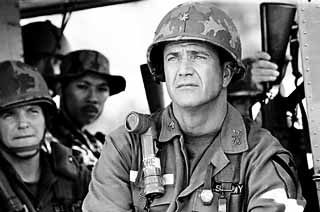When many people think of the term "leader", they think of a person of great character and poise who has the organizational and people skills to guide a group of people towards reaching a goal. My goal as a leader is to use my problem solving and social skills as well as my values and good judgement to inspire others to be better people. My experiences in leadership roles combined with what I have learned in Management and Leadership class have formed my leadership philosophy that I read with you now.
I was given a leadership opportunity when I was asked to Co-Chair the North Suburban Prom Fashion Show, a charity event in which students from various north shore high schools walked the runway at the North Suburban YMCA to model spring's prom fashion trends and raise money for Northbrook Citizens for Drug and Alcohol Awareness (NCDAA). Red Door Spa, Men's Wearhouse and Lord and Taylor donated their hair and make up services, tuxedos, and dresses for our models. Various local business donated items to the raffle we held during the show as well as food that was served at our reception. Glenbrook North Principal, Dr. Paul Pryma, has been our Master of Ceremonies for the past two years.
My Co-Chair and I practiced many essential leadership skills during the planning and execution of this event each year. Through this class I explored new management and leadership skills that I will not only use while planning next year's prom fashion show, but for future management and leadership opportunities as well.
The 7 Habits of Highly Effective Teens- Here are three that I applied.
1) Be Proactive
My Co-Chair and I ran in to many obstacles, such as models dropping their commitment to our show at the last minute, food for our reception running late, hair and make up appointments with Red Door Spa running late, and models not showing up to their dress or tuxedo fitting appointments. We had to problem solve proactively, not reactively. If we attempted to solve our problems reactively, nothing would get done efficiently. For next year's show, I will keep in mind that problem solving proactively in times of crises is much more efficient than problem solving reactively.
2) Begin With the End in Mind
Our first meeting will be in October, even though our show isn't until the Spring. Keeping the end in mind, it's important to begin our planning early so we aren't scrambling towards the end. At our first meeting we will create a mental vision of what our show will look like. From this, we learned what goals need to be set and what we need to do in order to achieve them.
6) Synergize
My Co-Chair and I must establish synergy in order to reach success. I have been working with the same Co-Chair for the past two years, however, next year she will be going off to college! Working with a new Co-Chair may be a challenge, but if we learn to make compromises in order to have synergy we will still reach success.
Management- The process of accomplishing the goals of an organization through the effective use of people, financial and material resources.
1) Planning
We learned in class that to plan successfully, you must have a systematic process of developing an outline for the accomplishment of goals. This provides direction and common sense of purpose. Before our first meeting, I will prepare a general outline of everything that has to get done before the day of the show, and how to go about getting them done. I'll keep in mind that these plans should be compatible and flexible, and not go too far into detail because plans can change.
2) Organizing
Our committee isn't organized in a particular way, for the most part our meetings are democratic. I think this is a good structure for our committee because it's flexibility has allowed everyone to contribute as much as they want.
Leadership- The process of influencing a group or individual to set or achieve a goal
1) Components of leadership
- The Leader
- Philosophy, values, needs, and leadership style are the qualities that make up a leader. The leadership situation changes based upon these qualities. In future leadership opportunities, I will organize these qualities to determine what leadership style is needed for the situation I'm in. It's important a leader claims where they stand in these four qualities so they can be a consistent leader.
- I have a more democratic style of leadership because of my listening skills. While keeping the group inline and organizing a plan of attack, I feel it's important to hear what the people who are working with you have to say. Otherwise, there is no use in hiring them in the first place. My needs would be minimal, however employee cooperation and focus would be appreciated. I am a very empathetic and realistic leader. I would connect with the employee and make a personal bond with them. Since I'm realistic, I'm not afraid to address a problem, and expect my employees to obtain this value as well.
- The Led
- Their needs and abilities influence the leader's leadership style. A good leader should be able to adapt to their follower's needs and interests.
- I think adaptability is one of the most important values for a leader to have. I admit I have a hard time adapting to certain personality types. If a follower shows they are uninterested in the task at hand and acts out or clearly shows their disinterest, I find it hard to re-engage them. I will make it my goal to become a more adaptable leader.
- The Environment
- The environment an employee works in is key to their level of comfort and happiness with their job. In a future leadership position, I would want the environment of my workplace to be positive and inviting. Not only will this attract employees, but customers as well.
2) Task or Employee Motivation
I would choose to motivate through Employee Motivation. It's common for a Democratic leader like me to use employee motivation to motivate their workforce because of it's focus on the individual employee rather than the task at hand. Task Motivation emphasizes getting the job done through better methods and equipment, focusing less on employees and more on the task. A leader with an Autocratic leadership style often uses this form of motivation because employee voices aren't always heard. I would incorporate both forms of motivation while leading. I think both are necessary if I want to reach a goal successfully and with satisfaction.
3) The Six Pitfalls of Leadership
- Not asking for employees for help and advice
- Since I have a democratic leadership style, asking for employee help and advice is important.
- Emphasizing rules rather than employee skills
- This would be motivation by task, not employee. My interest in employee contributions shows why I would emphasize people skills rather than just task skills.
- Not keeping employee feedback constructive
- Criticism should be constructive so employees can learn from their mistakes and improve their performance. Criticism that will only bring them down can negatively impact their performance and bring the whole team down. I will interview each employee periodically through out the year to tell them what they have done well and what they can improve on, by giving them constructive criticism.
- Ignoring employee complaints
- Listening to feedback from employees is one of the best ways to be constantly improving your business. Not only will the business be happy, but those working for the business will be working in an environment they like. Happy employees will be willing to work harder than those who are unhappy. I will be an open leader who will listen to all employee complaints.
- Keeping employees uninformed
- Without keeping employees informed, it is impossible for employees to give proper feedack, and harder for them to complete their own tasks.
- Attacking your competition
- It has always been important to me to focus on why my own party is strong, not why the other party is weak. I will never try to attack the competition. Instead, I will use factual arguments to explain to a customer why they should come to my business instead of another.
4) Communication
- Types of Communication
- Impersonal communication is important to get a message out to the general public; advertising by memos, letters, or bulletin boards.
- Interpersonal communication is important in reaching the individual; connecting to a customer either face-to-face or on the phone.
- Communication has been a major asset to our success with the prom fashion show. If our committee members don't communicate well, or if we don't communicate with the businesses we are working with well, success will be hard to reach. For our next show I will continue to be consistent with my communication.
Co-Chairing the North Suburban Prom Fashion Show has been great preparation for when I enter the business world some day. After taking this class, I have realized there are many management and leadership skills I have already used and some were new to me. I will apply both established and new management and leadership skills to next year's North Suburban Prom Fashion Show and future leadership opportunities.














